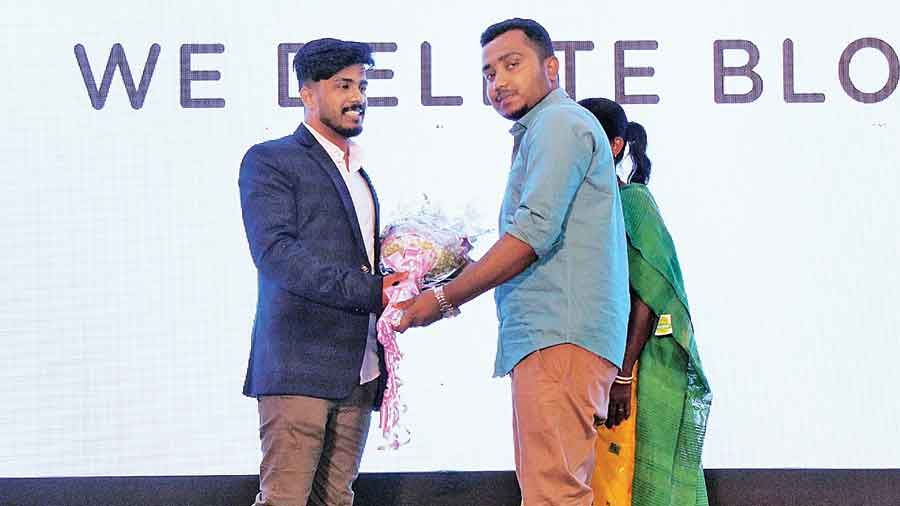A young cancer survivor from Bangladesh who had received blood stem cells from an Indian donor he had never met came face to face with his saviour for the first time on Tuesday in Kolkata.
Atanu Kishor Dwari was an 18-year-old fighting blood cancer in 2018 when his HLAs (human leukocyte antigens) matched that of Kishor Dev, a 23-year-old IT professional in Bangalore.
“When I underwent the procedure, all I knew was that a boy from Bangalore was donating his bone marrow. Today, when I met him for the first time, I was speechless. I really did not know how to thank him,” said Atanu, who has travelled more than 235km from Jhalokathi district in Bangladesh to meet the donor.
Atanu, who had to discontinue studies after Class XI and had become unfit to even walk a few steps, is now back on his feet and could undertake the journey to meet the man who saved his life.
“I owe my life to this man whom I had never met before. He told me that it was a small thing, but for me it meant my entire life,” Atanu said.
The two met at Tata Medical Center.
Kishor, now 28, said he had registered his name as a stem cell donor in 2017 through a non-profit organisation called DKMS-BMST Foundation India. A year later, he got a call that the bone marrow of a patient from outside India matched his. “It was a simple procedure, just like donating blood. I returned home the same day and continued with my normal schedule,” Kishor said.
The foundation recently called him again asking him whether he wanted to see the patient who received his stem cells. “I agreed immediately,” said Kishor. “Today when I saw him, I felt a sense of satisfaction. It is something beyond words can describe.”
Kishor said his wife Reshma, too, is willing to become a donor. Across the border, Atanu’s sister Atashi Anushree, 16, has told her brother that she will register for donating stem cells after turning 18.
In the procedure that Atanu went through, his bone marrow was cleared of cancer cells with the immunity provided by the healthy cells of the donor, said Reghu K.S., senior consultant, department of paediatric haemato-oncology and cellular therapies at Tata Medical Center, who conducted the transplant.
“The procedure started in 2018. Quite some years have passed and the patients have not shown any signs of relapse. Hence, we can assume that he (Atanu) has been cured,” Reghu said.
Mammen Chandy, director of Tata Medical Center, said: “About 30 per cent of the times HLA-matched donors are available within the family. However, for the rest, we have to look for an unrelated donor.”
India, he said, has one of the highest ratios of searches for unrelated donors that do not result in transplantation. “This gap can be bridged only when more and more people from different ethnicities in India join the donor registry,” Chandy said.
DKMS-BMST offers the donor and the recipient a chance to get connected two years after a transplant.
“Whether they will meet or not is completely their choice,” said Patrick Paul, CEO of DKMS-BMST.
